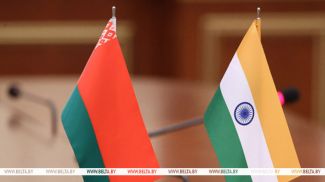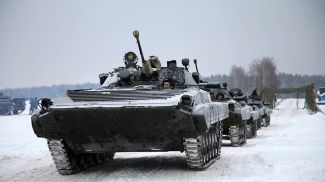MINSK, 28 June (BelTA) - Belarus had to deal with a refugee crisis in 2021 when more than 3,500 migrants from the Middle East were trying to cross the Polish border in Belarus, and the country did well, Colonel Aleksei Begun, Head of the Citizenship and Migration Department of the Belarusian Ministry of Internal Affairs, told the media in Minsk on 28 June, BelTA has learned.
"The appropriate authorities, both non-governmental organizations and in general all departments that deal with migrants, have gained a lot of experience. We never had such a thing when overnight, instead of receiving and accommodating tourists, we began to receive migrants who sought to get to the European Union," Aleksei Begun noted.
We needed to localize the flows of migrants and restructure the work, he said. It was important to understand that those were refugees (children, women, people who were in a vulnerable situation) who wanted to get into the EU and they needed help. “Together with other law enforcement agencies, we learned how to prevent violence. We began to work with this category of people and, I think, we handed the situation on the border well," he said.
According to Aleksei Begun, an important task for the Ministry of Internal Affairs is to identify refugees, illegal migrants, and those who pose a threat to society. This situation helped the Belarusian law enforcers learn certain lessons, gain and exchange experience.
The head of the department was asked who the people gathered at the Polish border in Belarus were. “Those were migrants and refugees. It is understandable that a person is looking for a better place to live. They wanted to live in a developed European state where human rights are respected and where there is no danger to life or health. They were looking for protection,” he said. European officials made some declarative promises to refugees but they never acted upon them, Aleksei Begun added.
One of the foreigners has been waiting for the EU to okay the family reunification for more than eight months. “The decision on the reunification is still pending and he is still in Belarus,” the head of the department said.
On 28 June Minsk played host to a panel discussion on information and experience sharing in response to emergency situations related to an inflow of migrants. The event provided an opportunity to analyze the experience gained during the migrants' stay at the logistics center on the Belarusian-Polish border.













